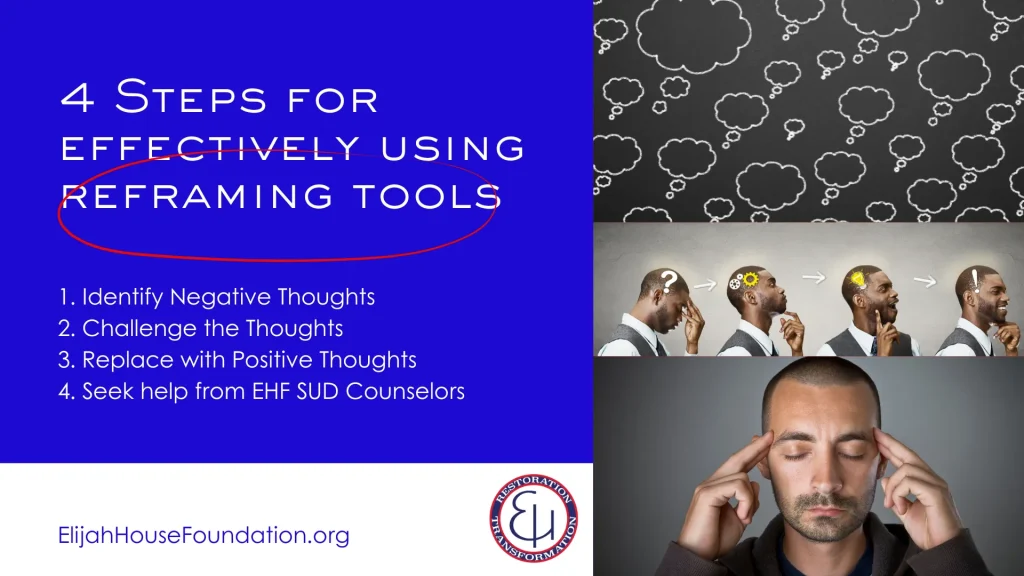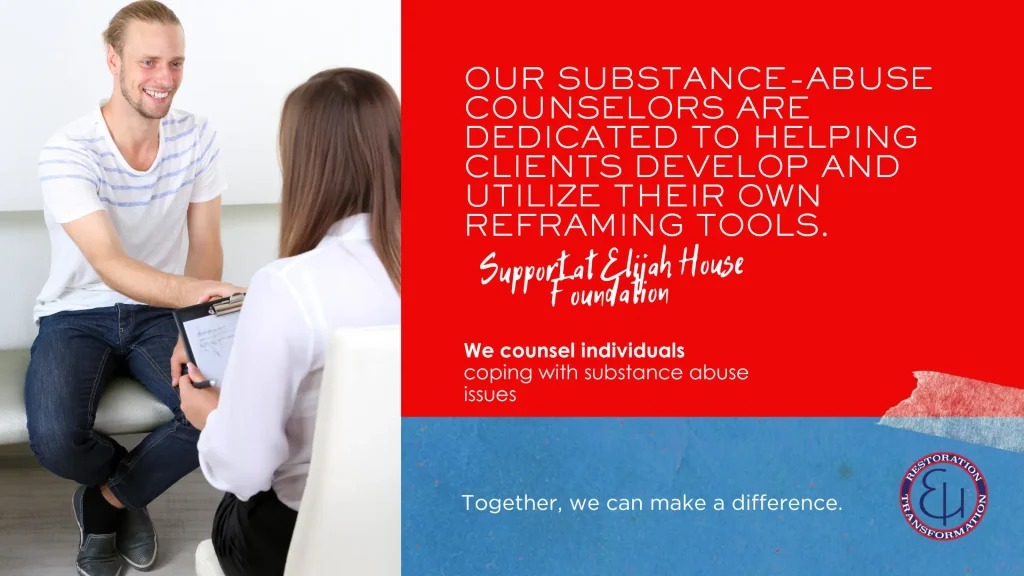
Individuals who have experienced trauma or substance abuse often lack effective coping mechanisms, which can hinder their path to recovery. The mental and emotional toll of these experiences can lead to deeply ingrained negative thought patterns and behaviors. Without intervention, these negative patterns can perpetuate the cycle of addiction and mental health challenges. Learning and utilizing reframing tools is crucial for breaking this cycle and achieving long-term recovery.
Why Reframing Tools are Essential
Reframing tools are cognitive-behavioral techniques that help individuals identify and alter negative or irrational thoughts. These tools are essential for those in recovery because they foster a healthier mindset, reduce the risk of relapse, and promote emotional stability. Substance abuse and trauma can distort an individual’s perception of themselves and their environment, leading to feelings of hopelessness, guilt, and shame. By learning to reframe these negative thoughts, individuals can build resilience and gain a more balanced perspective on their experiences and future.
What are Reframing Tools?
Reframing tools are strategies used to shift one’s perspective on a situation, thought, or belief. The goal is to replace negative or harmful thoughts with more positive and constructive ones. This technique is a cornerstone of cognitive-behavioral therapy (CBT), which is widely used in treating various mental health issues, including substance abuse and trauma-related disorders.

How to Use Reframing Tools
To effectively use reframing tools, individuals should follow these steps:
- 1. Identify Negative Thoughts: The first step is to recognize when you are having negative or irrational thoughts. This requires self-awareness and mindfulness.
- 2. Challenge the Thoughts: Once identified, critically evaluate these thoughts. Ask yourself if they are based on facts or assumptions. Consider alternative perspectives.
- 3. Replace with Positive Thoughts: Substitute the negative thought with a more balanced and constructive one. Focus on realistic and positive outcomes.
Example of Reframing in Action
Imagine a person in recovery who thinks, “I’ll never be able to stay sober; I’ve failed so many times before.” This thought can lead to feelings of defeat and increase the risk of relapse. Using a reframing tool, the individual can challenge this thought by asking, “Is it true that I’ve always failed? Are there times when I succeeded, even if only for a short period?” By recognizing past successes, no matter how small, the individual can replace the negative thought with a more positive one: “I’ve had setbacks, but I’ve also had successes. I can learn from my past and use it to strengthen my recovery.”

Support at Elijah House Foundation
At the Elijah House Foundation, our substance-abuse counselors are dedicated to helping clients develop and utilize their own reframing tools. We believe that empowering individuals with these skills is fundamental to their recovery journey. Our comprehensive approach includes personalized counseling, cognitive-behavioral strategies, and continuous support to ensure our clients build the resilience needed for lasting recovery.
Conclusion
Reframing tools are invaluable for individuals recovering from trauma and substance abuse. By learning to challenge and alter negative thought patterns, individuals can improve their mental health, reduce the risk of relapse, and achieve long-term recovery. At the Elijah House Foundation, we are committed to guiding our clients in developing these essential skills, fostering a healthier and more hopeful future.
By integrating reframing tools into their recovery process, individuals can transform their outlook on life and enhance their overall well-being. If you or someone you know is struggling with substance abuse or trauma, consider reaching out to the Elijah House Foundation for support and guidance in developing these vital cognitive skills at (530) 815-9558.
References
SAMHSA. (n.d.). Recovery Support Tools and Resources.
SAMHSA. (2015). Trauma-Informed Care in Behavioral Health Services.
